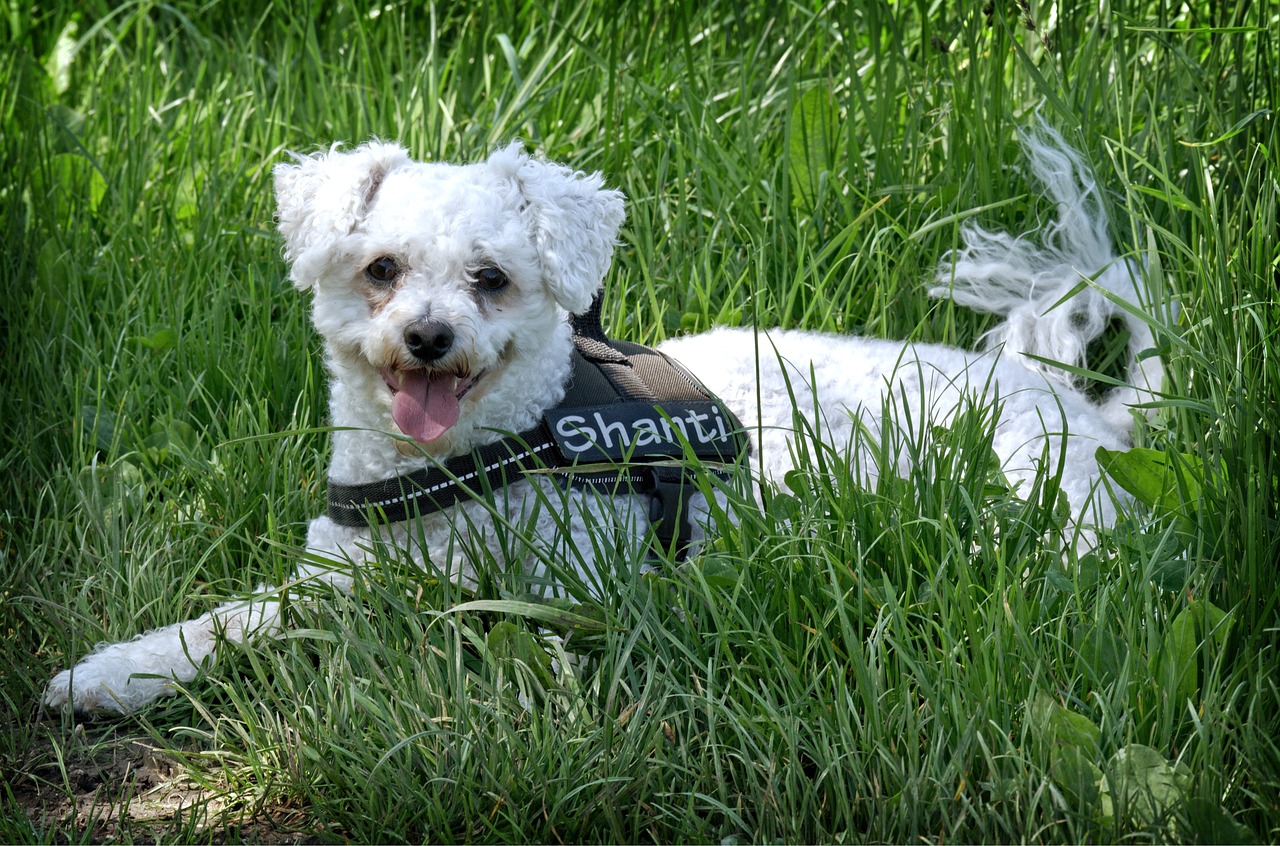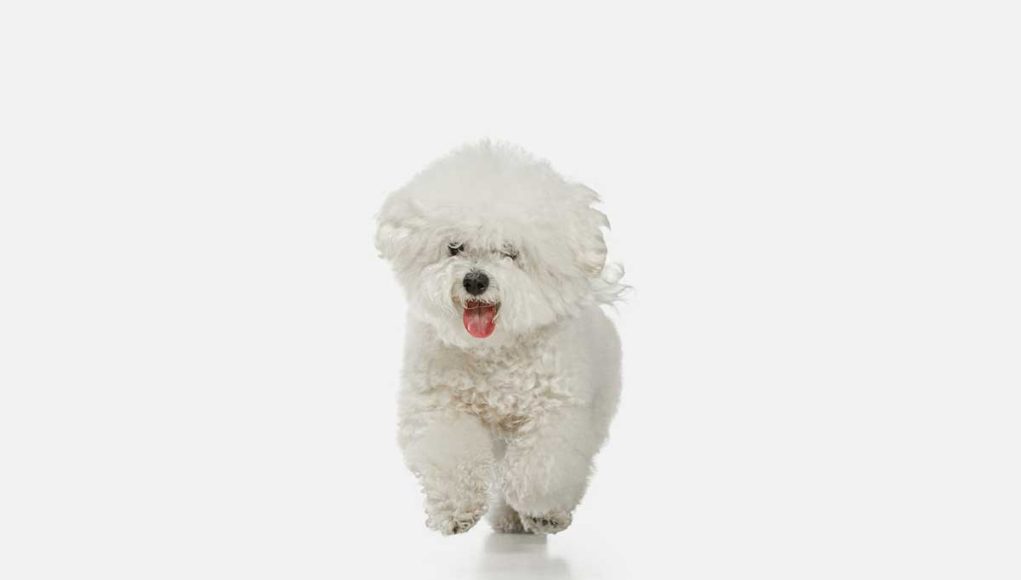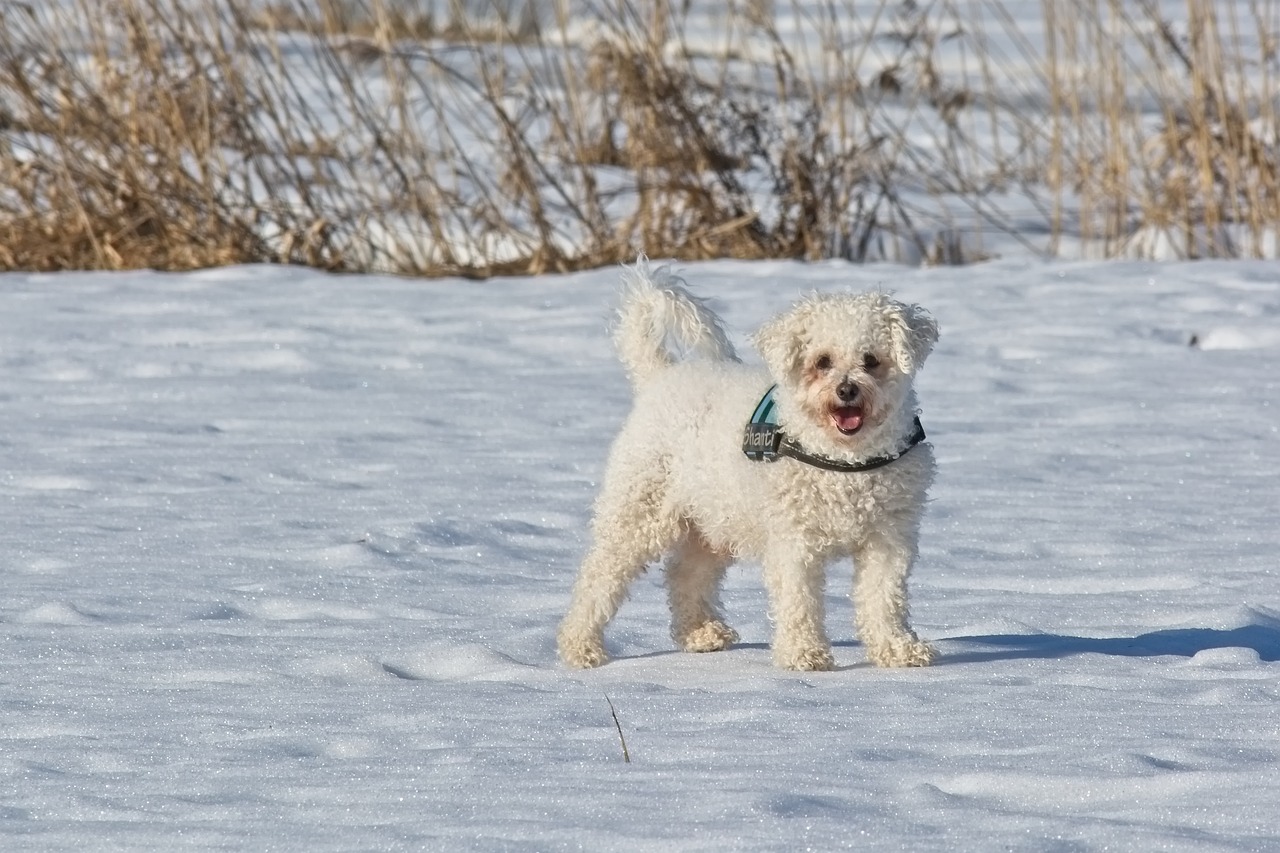The Bichon Frisé is a small, cheerful, and fluffy breed known for its charming personality and hypoallergenic coat.
Often referred to as a « living cotton ball » due to its soft, curly fur, the Bichon Frisé has long been a favorite among dog lovers for its affectionate and playful demeanor.
Bichon Frisé : A Complete Guide to This Dog Breed
This article provides a detailed overview of the Bichon Frisé, including its history, physical characteristics, temperament, care needs, and health concerns.
Whether you’re considering adopting a Bichon Frisé or simply want to learn more about this adorable breed, this guide has everything you need to know.
The Origins
The Bichon Frisé has a rich and ancient history that dates back to the Mediterranean region. It is believed to be descended from the Barbet, a water dog, and was developed into the Bichon family of breeds.
The Bichon Frisé specifically became popular in Europe during the Renaissance, especially in France, Spain, and Italy. These dogs were beloved by nobility for their charming looks and affectionate nature. Over time, the Bichon Frisé found its way into the hearts of dog lovers worldwide.
Fun Fact: The name « Bichon Frisé » means « curly lap dog » in French, a fitting description for this breed with its cloud-like coat and friendly demeanor.
Physical Characteristics
The Bichon Frisé is instantly recognizable due to its soft, white coat and small, sturdy frame. Here’s a detailed look at their physical traits:
- Size: Bichon Frisés are small dogs, typically weighing between 10-18 pounds (4.5-8 kg).
- Height: They stand about 9.5-11.5 inches (24-29 cm) tall at the shoulder.
- Coat Color: The Bichon Frisé’s coat is always white, though puppies may have cream or apricot markings that usually fade as they mature. Their coat is soft, curly, and double-layered, giving them their distinctive « puffy » appearance.
- Morphology: The Bichon Frisé has a sturdy and compact body with a slightly rounded head. Their dark, round eyes and black nose contrast sharply with their white coat, giving them an expressive, alert look. Their tail is carried gracefully over the back, adding to their elegant appearance.
- Distinctive Features: One of the Bichon Frisé’s most notable features is its hypoallergenic coat, which makes the breed a popular choice for people with allergies. Their curly fur requires regular grooming to maintain its fluffy texture.
Comparison: Compared to other small breeds like the Maltese, which also has a long white coat, the Bichon Frisé’s fur is curly rather than straight, and it has a slightly sturdier build.

The Temperament of the Bichon Frisé
The Bichon Frisé is known for its cheerful, friendly, and affectionate nature. These dogs love being around people and are excellent companions for families, singles, and seniors alike.
- Interaction with Children: Bichon Frisés are great with children, thanks to their playful and gentle demeanor. They enjoy being part of family activities and are generally very tolerant of children’s antics. However, because of their small size, supervision is recommended when they are around very young children to prevent accidental injury.
- Behavior with Other Animals: Bichon Frisés usually get along well with other pets, especially when they are socialized from a young age. Their friendly and non-aggressive nature makes them great companions in multi-pet households.
- Training Tips: Bichon Frisés are intelligent and eager to please, making them relatively easy to train. They respond well to positive reinforcement, and consistent training helps prevent any stubborn behaviors. They also enjoy learning new tricks and participating in activities like agility or obedience training.
Care Needs for the Bichon Frisé
While the Bichon Frisé is a low-shedding breed, its coat requires regular grooming and care to keep it looking its best.
- Coat Maintenance: The Bichon Frisé’s curly coat requires daily brushing to prevent tangles and mats. Regular grooming appointments are recommended to keep their coat trimmed and manageable. Their hypoallergenic coat is ideal for people with allergies, but it needs consistent care to maintain its soft, fluffy texture.
- Exercise Requirements: Bichon Frisés are playful and energetic but don’t require excessive exercise. Daily walks and playtime are enough to keep them happy and healthy. They are well-suited for apartment living but enjoy outdoor playtime in a secure yard or park.
- Hygiene and Specific Care: Regular cleaning of the Bichon Frisé’s eyes is important, as they are prone to tear staining, which can cause discoloration around their eyes. Dental care is also essential, as small breeds are prone to dental issues, so regular teeth brushing and professional cleanings are recommended.
Common Health Issues
Bichon Frisés are generally healthy dogs, but like all breeds, they are prone to certain health conditions. Being aware of these potential issues can help ensure your Bichon stays healthy throughout its life.
- Allergies: Bichon Frisés are prone to skin allergies, which can cause itching, redness, and irritation. Regular grooming and a balanced diet can help manage these issues.
- Patellar Luxation: This condition, where the kneecap slips out of place, is common in small breeds like the Bichon Frisé. In severe cases, surgery may be required to correct the issue.
- Bladder Stones: Bichon Frisés can be prone to bladder stones, which may cause discomfort or difficulty urinating. A diet that promotes urinary health and regular vet check-ups can help manage this risk.
- Life Expectancy: Bichon Frisés have an average lifespan of 12-15 years. With proper care, regular vet visits, and a healthy lifestyle, they can live long, happy lives.
Life Expectancy and Quality of Life of Bichon Frisés
On average, Bichon Frisés live between 12 and 15 years. Their quality of life depends on maintaining their health, providing enough exercise, and ensuring they receive the love and attention they crave.
- Maximizing Quality of Life: To ensure your Bichon Frisé lives a happy and fulfilling life, provide them with regular exercise, mental stimulation, and plenty of affection. A balanced diet and routine veterinary check-ups are also crucial for maintaining their overall health. Bichon Frisés thrive when they are part of a family and involved in daily activities.
Pros and Cons of Owning a Bichon Frisé
Advantages:
- Bichon Frisés are hypoallergenic, making them a great choice for people with allergies.
- Their friendly, affectionate nature makes them excellent companions for families, singles, and seniors alike.
- They are relatively easy to train and eager to please, making them suitable for first-time dog owners.
Disadvantages:
- Their curly coat requires regular grooming and care, which can be time-consuming and costly.
- Bichon Frisés are prone to separation anxiety if left alone for long periods, as they crave companionship.
- They may be prone to health issues such as allergies and dental problems, requiring diligent care.
What to Know Before Adopting a Bichon Frisé
Bichon Frisés are best suited for owners who can dedicate time to grooming and provide plenty of attention and affection.
They thrive in homes where they are treated as part of the family and are included in daily activities. Ideal owners include families, singles, or seniors who can meet their exercise and grooming needs.
Before adopting a Bichon Frisé, it’s important to understand the breed’s grooming requirements and potential health concerns. Consulting with breeders or rescue organizations can help prospective owners determine if the Bichon Frisé is the right fit for their lifestyle.
Comparing the Bichon Frisé with the Poodle
Both the Bichon Frisé and the Poodle are hypoallergenic breeds with curly coats. However, while the Bichon Frisé has a more playful, relaxed temperament, Poodles are known for their intelligence and often require more mental stimulation.
Bichon Frisés are slightly smaller and tend to have a more laid-back personality compared to the highly active Poodle.
Conclusion
The Bichon Frisé is a cheerful, affectionate, and hypoallergenic companion that fits well into various living situations. With proper grooming, training, and health care, Bichon Frisés can be delightful pets for many years. Whether you live in an apartment or a house, the Bichon Frisé’s adaptable and friendly nature makes it an excellent choice for dog lovers of all ages.









